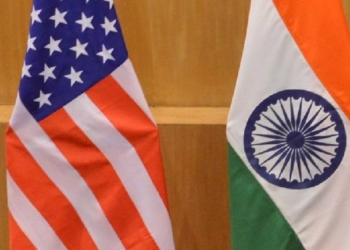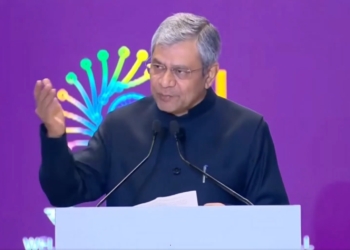New Delhi: A Comptroller and Auditor General (CAG) report has raised concerns over financial irregularities in the Excise Supply Chain Information Management System (ESCIMS), revealing that an undue benefit of Rs 24.23 crore was provided to the implementing agency (IA).
The report, titled Performance Audit Report on Regulation and Supply of Liquor in Delhi, was presented to the new Delhi Assembly on Monday.
The audit highlights that payments were made for liquor bottles that were not authenticated through barcode scanning at the Point of Sale (POS). According to the findings, the implementing agency received this undue benefit between December 2013 and November 2022, says the report.
The Delhi Cabinet had decided in February 2010 to introduce barcoding for all liquor sold in the city to curb smuggling and ensure traceability. The ESCIMS project, implemented through a bidding process, was tasked with covering barcoding of liquor, inventory management, and payment solutions for all stakeholders involved.
As per the contract, the implementing agency was entitled to payments only for those barcodes that were authenticated at the POS during sales. However, the audit found that, between December 2013 and November 2022, barcode authentication amounted to Rs 65.88 crore, while the actual payment liability created was Rs 90.11 crore.
This resulted in a difference of Rs 24.23 crore, which was paid for bottles considered as sold through a “stock-take-sold” exercise, i.e., without proper barcode authentication at the POS.
The CAG report further noted that, despite poor barcode scanning, a Departmental Committee recommended ad-hoc payments to the implementing agency for the first three months, including for unverified stock. The Finance Department subsequently approved the payments, without addressing the issues raised.
In April 2015, the Excise Department sought the Finance Department’s opinion again, leading to an order for reconciliation of the barcode data. However, the report indicated that the reconciliation was not carried out properly, and the payments continued.
The report also pointed out that these payments violated the contractual terms outlined in Schedule VI of the Master Services Agreement, which clearly required barcode data to be authenticated through POS sales, damage, or expiry before any payments could be processed.
The audit concluded that the release of payments for un-scanned bottles was not in line with the terms of the contract, resulting in an undue benefit to the implementing agency.
While the Delhi government defended the payments, arguing that they were based on “data captured” in the system, the CAG rejected this reasoning, affirming that the payments were made without proper authentication, violating the agreed-upon terms.
(IANS)
















